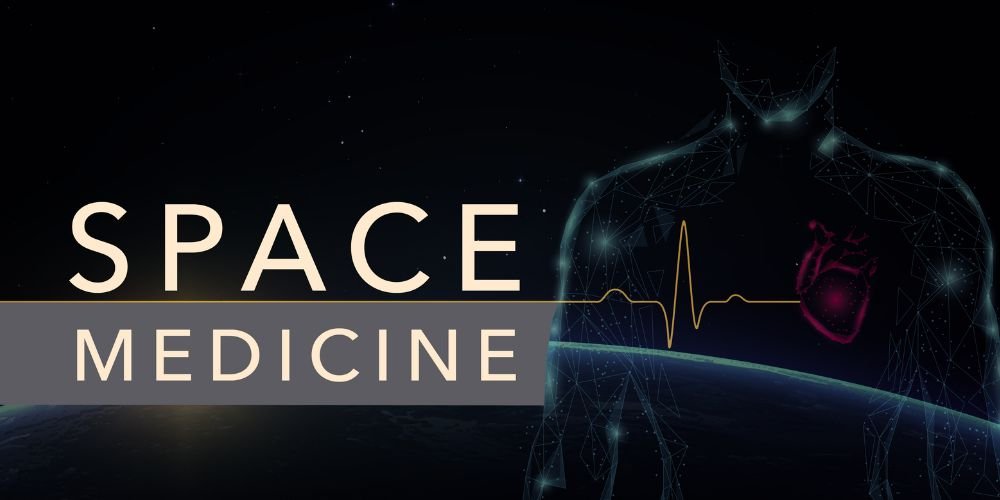Space medicine is critical in ensuring astronauts’ health and well-being as they embark on journeys beyond Earth’s atmosphere. This article delves into the historical context of space medicine, the unique challenges posed by the space environment, advancements in medical technologies for space exploration, and the future of healthcare beyond our planet.
The Genesis of Space Medicine
The inception of space medicine can be traced back to the pioneering days of human spaceflight. As astronauts ventured into the unknown, the need to understand and address the physiological and psychological effects of space travel became apparent.
Yuri Gagarin – The First Human in Space
On April 12, 1961, Yuri Gagarin made history as the first human to orbit the Earth. Gagarin’s mission highlighted the need for a comprehensive understanding of how the human body responds to the microgravity environment of space, setting the stage for the development of space medicine.
Apollo Missions – Lunar Exploration and Health Challenges
The Apollo missions to the Moon presented new challenges for space medicine. Extended space missions required innovative medical solutions to ensure the health and safety of astronauts during their journeys to and from the lunar surface.
Challenges of the Space Environment
The space environment poses unique challenges to the human body, ranging from microgravity effects to radiation exposure and psychological stress. Space medicine aims to address these challenges and develop countermeasures to mitigate their impact on astronauts’ health.
Microgravity Effects – Adaptation and Countermeasures
Extended exposure to microgravity can lead to physiological changes such as bone density loss, muscle atrophy, and cardiovascular deconditioning. Space medicine research focuses on developing exercise regimens, dietary strategies, and pharmaceutical interventions to counteract these effects and maintain astronaut health.
Radiation Exposure – Shielding Astronauts from Cosmic Rays
Space travelers are exposed to cosmic radiation, which poses potential health risks, including an increased risk of cancer and harm to the central nervous system. Space medicine explores ways to mitigate radiation exposure through spacecraft design, shielding technologies, and pharmaceutical interventions.
Psychological Stress – Maintaining Mental Well-being
Isolation, confinement, and the psychological challenges of space travel can impact astronauts’ mental well-being. Space medicine incorporates psychological support, counseling, and interactive technologies to address long-duration space missions’ emotional and cognitive aspects.
Advancements in Space Medicine Technologies
The evolution of space medicine is closely intertwined with technological advancements that enhance our ability to monitor, diagnose, and treat health issues in the challenging space environment.
Telemedicine and Remote Health Monitoring
Telemedicine enables real-time communication between astronauts and medical professionals on Earth. Remote health monitoring systems allow continuous assessment of vital signs, facilitating early detection of potential health issues and providing timely medical interventions.
Wearable Technologies – Personalized Health Data
Astronauts utilize wearable devices that monitor physiological parameters, including heart rate, blood pressure, and sleep patterns. These devices provide valuable data for personalized health assessments and allow medical teams to tailor interventions based on individual needs.
In-Orbit Diagnostics – Portable Medical Technologies
Compact diagnostic devices with ultrasound, imaging capabilities, and laboratory analysis tools are employed on space missions. These portable technologies enable in-orbit medical assessments, reducing the need for sample return to Earth for analysis.
Future of Healthcare Beyond Earth
As humanity looks toward ambitious missions to the Moon, Mars, and beyond, the future of space medicine holds the promise of continued innovation, collaboration, and the development of healthcare solutions for extended space exploration.
Lunar and Martian Habitats – Health Considerations
Planning for lunar and Martian habitats requires in-depth consideration of healthcare infrastructure. Space medicine aims to design medical facilities, preventive care measures, and treatment protocols to sustain human health during extended missions and potential colonization efforts.
Artificial Intelligence – Health Monitoring and Decision Support
Integrating artificial intelligence (AI) into space medicine holds the potential for advanced health monitoring and decision support systems. AI algorithms can analyze vast datasets, predict health trends, and assist medical professionals in making informed decisions for astronaut well-being.
Biomedical Research – Space Health for Earth
Space medicine research contributes not only to the well-being of astronauts but also to advancements in healthcare on Earth. Discoveries related to bone health, cardiovascular function, and psychological resilience in space have direct applications in improving medical care for people on our home planet.
Conclusion
Space medicine represents a dynamic and evolving field that continues to play a crucial role in ensuring the health and safety of astronauts exploring the cosmos. From the early days of Yuri Gagarin’s historic flight to today’s cutting-edge technologies, space medicine remains at the forefront of scientific and medical innovation. As humanity sets its sights on new frontiers, the lessons learned from space medicine will not only guide us through the challenges of space exploration but also contribute to advancements in healthcare that benefit all of humanity.











